 Image via WikipediaI just wandered into this site tonight. Dan Carlson, an assistant professor in Sweden, has put together a great website on Viking artifacts, ebooks, reports, and links/
Image via WikipediaI just wandered into this site tonight. Dan Carlson, an assistant professor in Sweden, has put together a great website on Viking artifacts, ebooks, reports, and links/Viking History
Archaeology Online features archaeological web sites, excavations, field schools, books, reviews, and where to find archaeology on the Web.
 Image via WikipediaI just wandered into this site tonight. Dan Carlson, an assistant professor in Sweden, has put together a great website on Viking artifacts, ebooks, reports, and links/
Image via WikipediaI just wandered into this site tonight. Dan Carlson, an assistant professor in Sweden, has put together a great website on Viking artifacts, ebooks, reports, and links/ Image by Elaine and Tony via FlickrHere is the English version of the Viking Ship Museum website. There is a lot of excellent information here and a discussion of boat building in Viking times.
Image by Elaine and Tony via FlickrHere is the English version of the Viking Ship Museum website. There is a lot of excellent information here and a discussion of boat building in Viking times.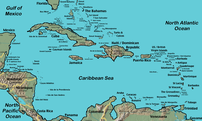 Image via WikipediaThe International Association for Caribbean Archaeology (IACA) has released a DVD of all their Proceedings from 1961 to 2005. The papers are searchable and are in a PDF format (so all computers with the Adobe Reader can read them). The cost is $100.
Image via WikipediaThe International Association for Caribbean Archaeology (IACA) has released a DVD of all their Proceedings from 1961 to 2005. The papers are searchable and are in a PDF format (so all computers with the Adobe Reader can read them). The cost is $100. Image via WikipediaHere are two British archaeologists who are fed up with archaeological misconceptions, mistakes and distortions. They say that they are dedicated to exposing Bad Archaeology wherever they find it.
Image via WikipediaHere are two British archaeologists who are fed up with archaeological misconceptions, mistakes and distortions. They say that they are dedicated to exposing Bad Archaeology wherever they find it.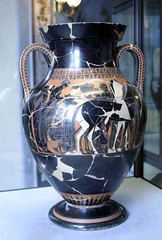 Image by jdlasica via FlickrA 2,000 year old Etruscan tomb that has never been looted, has been found in the hills of Tuscany.
Image by jdlasica via FlickrA 2,000 year old Etruscan tomb that has never been looted, has been found in the hills of Tuscany.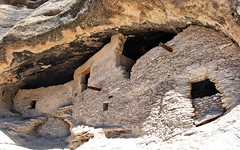 Image by tj.blackwell via Flickr
Image by tj.blackwell via Flickr Image via Wikipedia
Image via Wikipedia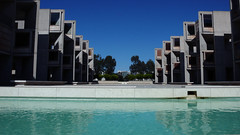 Image by JohnnyRokkit via Flickr
Image by JohnnyRokkit via Flickr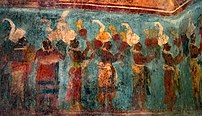 Image via WikipediaWhat is also interesting about this story of an Mayan tomb is that the discovery was made in 2005, but only announced last week.
Image via WikipediaWhat is also interesting about this story of an Mayan tomb is that the discovery was made in 2005, but only announced last week.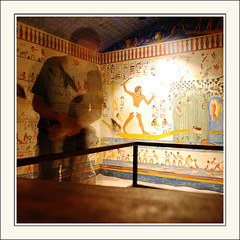 Image by Simian Cephalopod via Flickr
Image by Simian Cephalopod via Flickr Image via WikipediaAfter 35 years of excavation, an archaeological team for the Hebrew University of Jerusalem, has uncovered King Herod's tomb in Herodium. Here are some of the details.
Image via WikipediaAfter 35 years of excavation, an archaeological team for the Hebrew University of Jerusalem, has uncovered King Herod's tomb in Herodium. Here are some of the details. Image via WikipediaNow you can own a DVD covering the archaeology of Jerusalem.
Image via WikipediaNow you can own a DVD covering the archaeology of Jerusalem. Image via Wikipedia
Image via WikipediaThe Falmouth Field School in Historical Archaeology, Falmouth, Jamaica
University of Virginia Anthropology 382 and the Digital Archaeological Archive of Comparative Slavery
May 23 - June 15, 2007
The Falmouth Field School in Historical Archaeology (ANTH 382) is a
three-week, three-credit program in historical archaeology based in
Falmouth, Jamaica. The field school is offered through the University of
Virginia' s International Studies Office.
Students enrolled in The Falmouth Field School in Historical Archaeology (ANTH 382) will conduct archaeological field work at the Stewart Castle slave village, a mid-to-late 18th-century site that has not previously been tested archaeologically. Objectives for the season include a site-wide shovel test pit survey designed to identify temporal and spatial variation within the village. In addition to the survey, several excavation units will be opened to further explore areas discovered during the survey. Students will learn methods for designing archaeological surveys and technologies to record their results, specifically drawing archaeological plans and stratigraphic sections. Each afternoon students will participate in laboratory activities such as artifact washing and identification.
Several evenings a week are dedicated to lectures and discussions. Course readings and lectures will introduce students to archaeological survey and excavation methods, key concepts in the study of 18th-century material culture, and will provide a background in the social history of slavery in the Caribbean. Discussions will focus on the ways in which archaeological data can prompt and address unanswered historical questions related to the evolution of slave societies throughout the Atlantic World.
Students will have the opportunity to participate in optional field excursions on the two weekends to historic sites across the island, including New Seville, Good Hope Estate, Colbeck Castle, and Spanishtown.
This field school is held in conjunction with The Falmouth Field School in Historic Preservation (ARH 555). Students enrolled in ANTH 382 will spend one day a week learning historic preservation techniques with architectural history students from The Falmouth Field School in Historic Preservation (ARH 555).
The Falmouth Field Schools in Historical Archaeology and Historic Preservation will include lectures and field studies with Matthew Webster, Director of Architectural Restoration at Kenmore Plantation, Edward Chappell, Director of Architectural Research at the Colonial Williamsburg Foundation, and Fraser Neiman, Director of Archaeology at Monticello. Guest lecturers will also include historians and archaeologists affiliated with the University of West Indies, Mona, and the Jamaica National Heritage Trust. In Falmouth, the field school is supported by the local efforts of Falmouth Heritage Renewal, a non-profit preservation organization with over a decade of experience in historic preservation in Falmouth.
Room and Board Arrangements:
Students will be housed in a newly renovated two-story stone building in the heart of downtown Falmouth, Jamaica. Built in the early nineteenth-century as a Masonic lodge, the building served for much of its life as a Baptist manse. The building has a large workshop on the first floor and a number of dormitory-style sleeping quarters on the
upper floor. Students should be advised that these accommodations assume multiple students per room in bunk beds with shared bathrooms. Although fans will be provided, these rooms are not air-conditioned. Students will be provided with three meals a day, a breakfast, a packed lunch, and a hot supper. Food will be Jamaican-style and all diets can be accommodated. The building's location allows easy access to local markets and stores where snacks and supplies can be purchased.
Costs:
Cost per student, which includes tuition, room, and board, is $3100 (in-state) and $3,255 (out-of-state) per student. Room and board are included in the total cost of the field school.
Contact Information:
This field school is one component of the larger archaeological research program, the Digital Archaeological Archive of Comparative Slavery (www.daacs.org).
Please contact Jillian Galle (jgalle@monticello.org, 434-984-9873) for more information. Please also see www.studyabroad.virginia.edu (Go to "> Find a Program> "> and search under "> Jamaica> " ) or www.daacs.org.
Application Information:
Applications are due March 15, 2007. Students may apply online at www.studyabroad.virginia.edu (Go to "> Find a Program> "> and search
under "> Jamaica> " ).